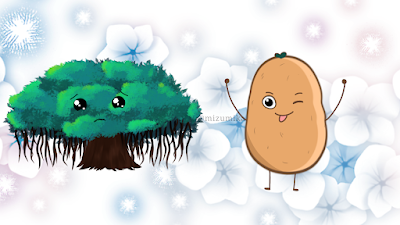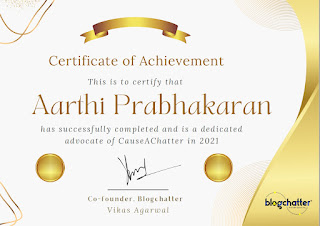In the past couple of
years, the pandemic lifestyle has removed the private space for adults to have
discussions that may become heated, especially when the discussions are about logistics of
planning family gatherings, vacations/trips, and functions. Living with each
other 24 x 7 with little or no possibility of stepping out of the home for
change of environment or company, kind of made us bicker at each other (even
heightening the ‘sibling discord’ moving it to a slightly unhealthy level of
displeasure) till, we finally realised that mixing a healthy dose of humour into
our everyday lives would help.
There were two
incidents in the recent months that happened I would like to share with you and
hope that there is something you will also be able to take away from these
anecdotes for your life and your sanity.
During one such
planning discussion that happened on a day when my first born decided to take an
off from regular school that resumed recently, I made a statement to move into
a different room so spare her the trauma of the two of us arguing.
 |
| Illustration by @mizumika |
My first born (M)
remarked, ‘How strongly grounded our family is!’
My spouse (B) said,
‘Grounded and rounded like potato.’
‘No Appa, well
grounded and rooted like the banyan’
‘Potato is found under
the soil’ said B, and I chipped in, ‘it is tasty, starchy and hence can replace
the main staple food of our household, which was rice.’
B continued, ‘It also
is representative of what we as a race have become, couch potatoes,
enjoying stuff that keeps us constantly in a sitting posture. It can also
wither wildfires and storms, unlike a banyan.’
‘We talk so much about
how we are like potato but none of us here eat or like mashed potato.’ retorted
M.
‘I love it’, in unison
chimed I and B, and I continued, ‘While we love potato, in almost all forms of
it, we also need to know that eating too much of it would make us feel stuffed
and result in farting’.
M, ‘WOW! I am sure no
other family would have equated a family staying grounded and connected, to a
potato. I was thinking of a banyan tree, when I mentioned our family is strongly
grounded, with so many roots that it will not be disturbed or harmed in any
kind of storm. Only our family could think so off the charts and bring up a potato and in the context of our family deeply under the ground grounded... like at least 4-6 ft pit in the ground deep… like the other
day when Appa went out, and R absent mindedly kept calling out for him, adding to
our streak of breaking stereotypes as a family.’
Now B wanted to know
what we were talking about. So here is the second incident.
A couple of weeks ago,
B stepped out on a weekend morning to run some errands that kept him out for a
while. My son (R) hates silence and being alone. He constantly needs company,
and his mouth will always be on speaking mode to the one who is sitting beside.
This constant conversation drains me out as I need my silence to rebound. My
spouse has mastered the art of responding without really listening and not
making it too obvious to anyone else but me. In my case, I wouldn’t blame him
for getting caught in the act of phasing out, it probably is me who catches it
almost immediately. :-D
So that day, B got
ready and before stepping out he told R that he will come for lunch at 2 p.m.
and that by then R was supposed to finish his classwork and homework from the
previous week that were still pending – result of the adjustment period of
going back to regular mode of school after 2+ yrs of online school. B left
saying bye to everyone personally. R was sitting at his desk upstairs in our
duplex home.
For almost 5 minutes,
every few seconds, he kept calling out for his father ‘Appa, Appa,…’
The first couple of
times I and M tried telling him that Appa had gone out and will be back only at
2 p.m. At one point we both could not stop our laughter at his cuteness, and he
felt that we were laughing at him. So, I called him down, gave him a bear hug
first and said, ‘We are not laughing at you chellam. We are admiring your
cuteness.’
This calmed him a bit.
I and M took turns explaining, ‘We also are laughing at how our family has
added one more aspect to the streak of breaking stereotypes as a family with
this. In most homes, the child almost always calls out to the mom, Amma, Amma,
but only in our home the sound we hear is for the father. And when you call out
for Appa you sound very cute.’
He joined us in our
laughter happily.
A family that laughs
together produces enough endorphins that help in strengthening the relationship bonds, in addition to contributing towards personal wellness.
Even the most difficult conversations are made easy with humour. I really do
hope some day the stereotypes vanish from the face of earth because then there would be more families that embrace the concept of ignoring stereotypes and does only
what work for the family.
This blog is part of Blogchatter’s #CauseAChatter challenge, #MentalHealth, #Discrimination.












